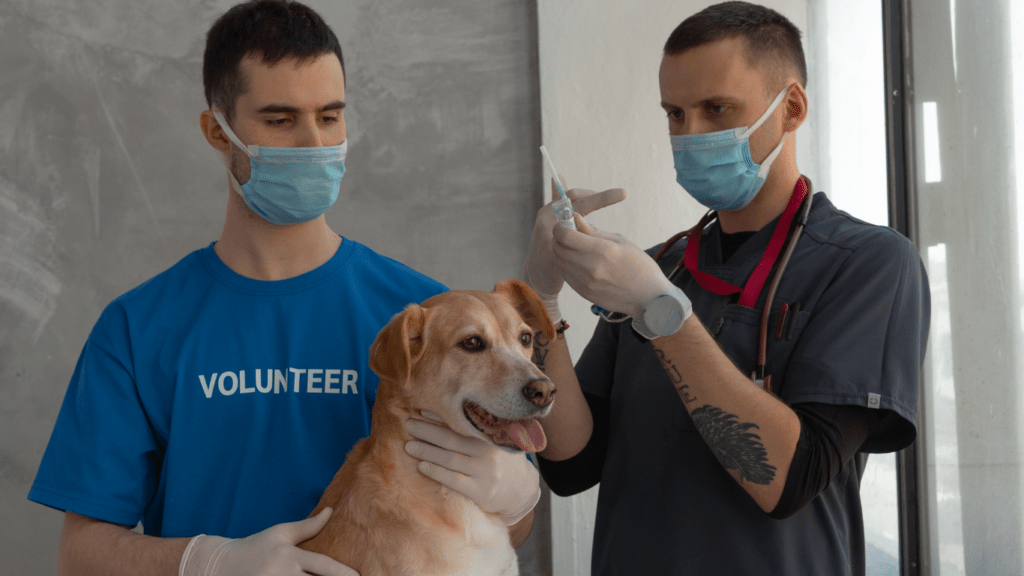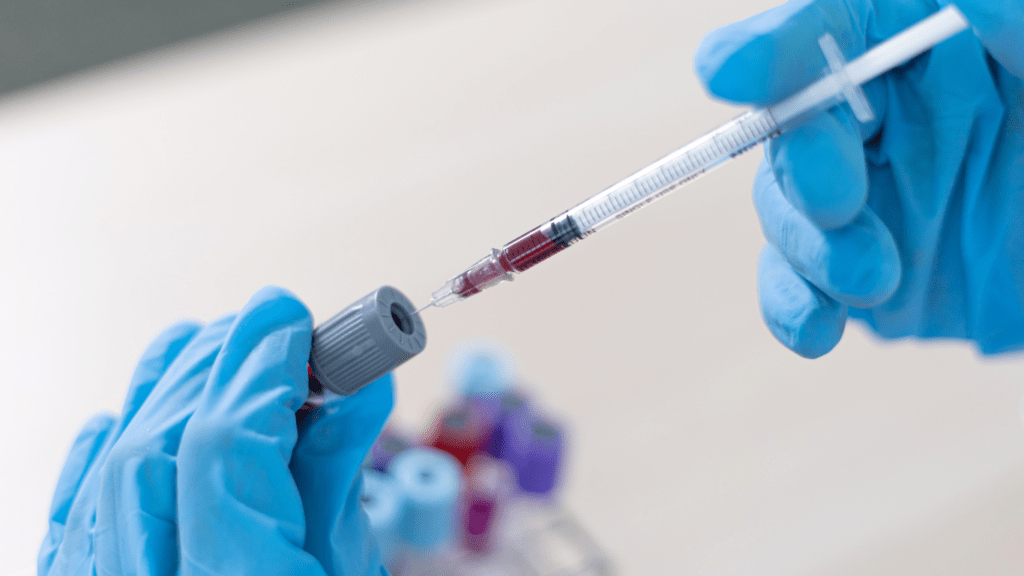What Is Pet Bloodwork?
Pet bloodwork involves analyzing a sample of your pet’s blood to assess their health. Vets typically conduct these tests during routine check-ups or when diagnosing specific issues. The tests can provide crucial information about your pet’s internal organs, immune system, and overall well-being.
Bloodwork consists of multiple tests, including Complete Blood Count (CBC) and blood chemistry panels. These tests quantify various components like:
- red blood cells
- white blood cells
- platelets
- levels of specific enzymes
- electrolytes
Understanding these values helps track your pet’s health and diagnose conditions early.
Common Tests in Pet Bloodwork
Complete Blood Count (CBC)
CBC evaluates the cellular components of the blood, including:
- Red Blood Cells (RBCs): Indicate oxygen-carrying capacity.
- White Blood Cells (WBCs): Reflect immune system status.
- Platelets: Essential for blood clotting.
Blood Chemistry Panel
Blood chemistry panels analyze the chemical substances in the blood:
- Liver Enzymes: Indicate liver function.
- Kidney Values: Assess kidney health.
- Electrolytes: Balance is crucial for bodily functions.
Thyroid Function Tests
These tests measure thyroid hormone levels:
- T4 and T3: Levels indicate thyroid activity.
- TSH: Helps diagnose thyroid disorders.
Coagulation Tests
Coagulation tests assess blood clotting:
- PT (Prothrombin Time): Time taken for blood to clot.
- aPTT (Activated Partial Thromboplastin Time): Measures clotting pathway efficiency.
Understanding these test components aids in maintaining your pet’s health. Keeping track of regular bloodwork results is vital for early detection of possible health issues.
Common Blood Tests for Pets

Veterinarians commonly use several blood tests to monitor pets’ health. These tests help detect, diagnose, and treat various medical conditions.
Complete Blood Count (CBC)
A Complete Blood Count (CBC) checks your pet’s red blood cells, white blood cells, and platelets. This test reveals information about anemia, infections, and clotting disorders. For example, if a pet has a low red blood cell count, it may indicate anemia. High white blood cell counts can suggest an infection or inflammation. Abnormal platelet counts might signal issues with blood clotting.
Blood Chemistry Panel
A Blood Chemistry Panel evaluates various substances in your pet’s blood. This test measures enzymes, proteins, and waste products, indicating organ function. Elevated liver enzymes can imply liver disease, while high creatinine levels may suggest kidney problems. This test covers a wide range of components, like glucose, which helps detect diabetes, and amylase, which provides insights into pancreas health.
Electrolyte Panel
An Electrolyte Panel checks the balance of minerals and fluids vital for cellular function. This test measures levels of sodium, potassium, and chloride. Abnormal sodium levels can affect hydration and blood pressure. High potassium might indicate issues with kidney function or severe dehydration. Chloride imbalances can reflect respiratory or metabolic conditions.
These tests collectively provide a comprehensive picture of your pet’s internal health, aiding in early detection and effective management of various ailments.
Key Bloodwork Parameters and Their Meanings
Veterinarians evaluate various bloodwork parameters to understand pets’ health comprehensively. Each parameter offers insights into specific health aspects.
Red Blood Cells (RBCs)
RBCs are crucial for oxygen transport in the blood. Abnormal RBC levels can indicate anemia or dehydration. High RBC counts may suggest conditions like polycythemia. Low RBC counts often point to anemia or blood loss.
White Blood Cells (WBCs)
WBCs are essential for immune response and fighting infections. Elevated WBC counts can signal infections, inflammation, or stress. Reduced WBC counts may suggest bone marrow issues or viral infections.
Platelets
Platelets help with blood clotting. Low platelet counts can increase bleeding risks and may indicate diseases like immune-mediated thrombocytopenia. High platelet counts could be associated with inflammation or certain cancers.
Glucose Levels
Glucose levels indicate blood sugar status. High glucose levels often point to diabetes mellitus. Low glucose levels can result from insulin overdose, severe liver disease, or certain tumors.
Liver Enzymes
Liver enzymes reflect liver function. Elevated enzymes can signify liver inflammation, bile duct issues, or hepatic disease. Common liver enzymes include ALT, AST, ALP, and GGT.
How to Prepare Your Pet for Bloodwork
Preparing your pet for bloodwork can improve the accuracy of test results and make the process smoother for both of you. Following certain guidelines ensures your pet’s comfort and cooperation.
Fasting Guidelines
Most veterinarians recommend fasting for 8-12 hours before bloodwork. This is because fats and other nutrients can alter blood chemistry readings, leading to inaccurate results. Ensure your pet has access to water during this fasting period to avoid dehydration. If your pet has special dietary needs or health conditions requiring food, discuss alternative fasting protocols with your veterinarian.
Managing Stress
Minimizing your pet’s stress level is critical for an accurate blood test. Pets can become anxious when visiting a veterinary clinic, which can affect certain test parameters. To reduce stress, use a calm, soothing voice and pat your pet gently to provide reassurance. Bringing along a favorite toy or blanket can offer additional comfort. If your pet suffers from severe anxiety, consider asking your veterinarian about mild sedatives or anxiety-relief supplements to make the experience less stressful.
What to Do After Receiving Results
Receiving your pet’s bloodwork results can feel overwhelming, but knowing what steps to take next is crucial for their health.
Discussing Results with Your Veterinarian
After getting the results, discuss them in detail with your veterinarian to understand what they mean for your pet’s health. Bring up any abnormalities and ask how they may impact your pet. A good veterinarian will explain each parameter, such as Red Blood Cells, White Blood Cells, and Glucose Levels, in understandable terms. For example, if your pet’s WBC count is high, the vet might investigate possible infections or inflammation. Take notes during this discussion.
Monitoring and Follow-Up Tests
Based on your pet’s initial bloodwork, the veterinarian might suggest monitoring specific health parameters or recommend follow-up tests. Regular monitoring is important for conditions like diabetes or early kidney disease. For instance, if your pet’s liver enzymes are elevated, additional tests might determine the underlying cause. Schedule follow-up appointments as advised to track your pet’s health trends accurately.



 Founder & Pet Wellness Advocate
As the visionary founder of Pet Paw Shack, Kimberliene Sabinin is passionate about helping pet owners provide the best care possible for their furry companions. With a background in veterinary science and animal nutrition, Kimberliene brings years of experience in promoting pet health, safety, and well-being. Her mission is to empower pet owners with practical knowledge about proper nutrition, behavior training, and overall pet wellness.
Founder & Pet Wellness Advocate
As the visionary founder of Pet Paw Shack, Kimberliene Sabinin is passionate about helping pet owners provide the best care possible for their furry companions. With a background in veterinary science and animal nutrition, Kimberliene brings years of experience in promoting pet health, safety, and well-being. Her mission is to empower pet owners with practical knowledge about proper nutrition, behavior training, and overall pet wellness.
